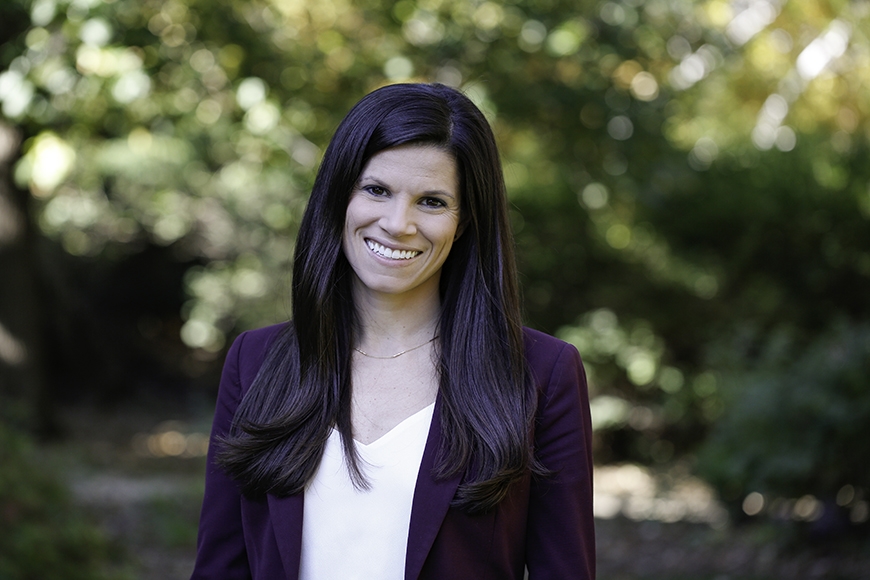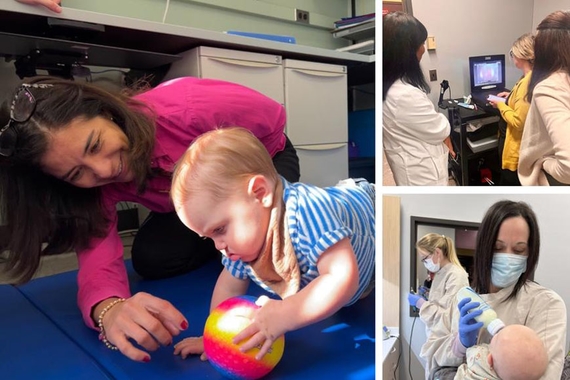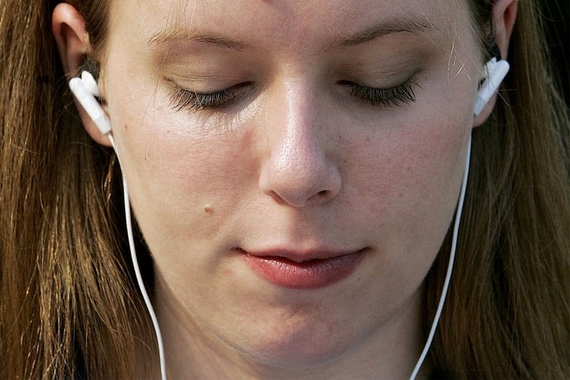From the NICU to the Classroom
While attending school in New York, Katlyn McGrattan thought she wanted to be a teacher before realizing she wanted to help kids in a totally different way.
Inspired by one of her undergraduate professors in New York, McGrattan realized her calling was speech pathology, which landed her in hospitals and clinics around the country. After living a double life as researcher and clinician, she applied for a position with the Department of Speech-Language-Hearing Sciences at the University of Minnesota.
Now as an assistant professor and researcher, McGrattan researches new methods to help clinicians ensure that infants born prematurely are eating, drinking, and swallowing properly—along with creating new and exciting innovations to help identify when they’re not.
Helping Those Who Can’t Help Themselves
By working in hospitals and clinics, “I learned quickly that we have a lot of babies with [dysphagia]...but we have very little research on how to treat them right,” McGrattan says.
Dysphagia is a disorder that causes difficulty swallowing and eating. When a child is born and shows signs of struggling to do these things, clinicians typically take X-rays to identify the problem—and therein lies the core of McGrattan’s research.
She, along with co-creators John Lindsay, treasurer, and Kyle Dahlstrom, CEO and senior engineer in device design, developed a company called nuBorn for a product to identify problems in a child’s throat that normally can only be seen by an X-ray. Essentially, “the bottle has a sensor inside of it that connects to a tablet via bluetooth and provides a display of the sucking data, as well as summary statistics and alerts for issues such as aspiration. It works a lot like a bedside monitor that measures heart rate, respiratory rate, etc. and alerts you if the person stops breathing or if aspiration occurs (milk goes into lungs),” McGrattan explains. The tool has the potential to change the way clinicians help premature babies.
For the health of the infants, X-rays can only be performed a few times, which means the window of finding the issue is extremely limited. If left untreated, dysphagia can lead to major speech and communication problems in the child’s future, but McGrattan is determined to put them on the road to health.
“[By using the device,] we could cut down radiation exposure, we could get better results, and then I also think [parents] could do the monitoring themselves from home,” McGrattan explains.
She notes the difficulty parents go through when all they want to do is feed their newborn child and can’t. Not only does her research help clinicians problem-solve in the NICU (neonatal intensive care unit), but it also gives parents a way to learn how to help their own children at a time when they may feel helpless.
McGrattan emphasizes that the device gives clinicians the potential to monitor exactly how a child is doing at home from the clinic.
Although she minimizes her time doing clinician work, McGrattan says it’s an aspect of her work she can’t let go of. While her research focuses on babies, she notes how inspirational it really is to be able to work with the families as well.
“I think when you have patients on the other side...you’re like, ‘Well, no, you can’t give up because this person still has an issue, and they can’t give up on it.’” McGrattan says.
From the Hospital to the Classroom
While conducting research in her lab in Shevlin Hall on the Twin Cities campus, McGrattan has had the opportunity to work with clinicians at the M Health University of Minnesota Masonic Children’s Hospital and transfer that work to her teaching.
“I spend a fair amount of time over at Masonic, whether it’s because of research, because of clinicals, or teaching, because I teach students using hands-on cases,” McGrattan says.
McGrattan teaches courses on dysphagia and augmentative communication in addition to an introductory course on speech pathology and audiology. With all her outside research and experience in hospitals from Boston to Minneapolis, McGrattan also connects students with her patients across the country using video chat. Her research gives these future clinicians the ability to apply what they’re learning in real time, creating an innovative and exciting future for speech pathology.
Research like McGrattan’s means taking important strides toward a brighter and healthier future for NICU babies and the clinicians that help them on their road to prosperity.
“Everyone here [at UMN] has just bent over backward to make it so [we] can be successful [in doing] the research...and that's just an awesome feeling,” McGrattan says.
This story was written by an undergraduate student in Backpack. Meet the team.



